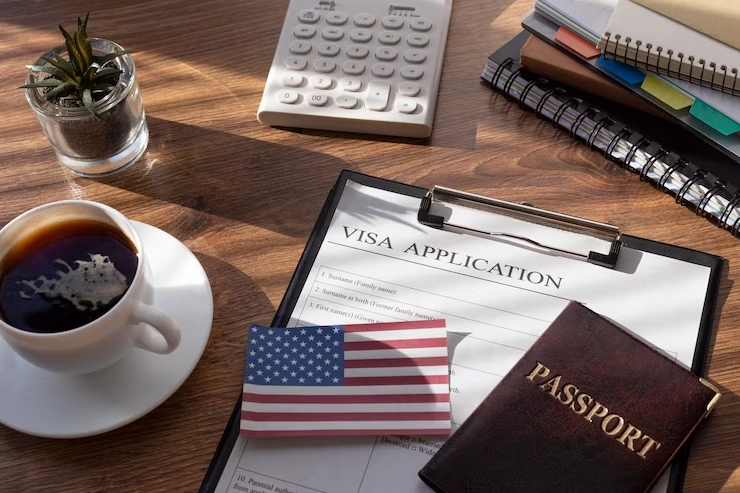Studying abroad can be a life-changing experience, offering a wealth of opportunities for personal growth and academic development. The United Kingdom (UK) is a popular destination for international students, known for its prestigious universities, diverse culture, and excellent educational standards.
To study in the UK, it is crucial to understand the student visa requirements, application process, costs, and other essential aspects. In this comprehensive guide, we will walk you through the entire process of obtaining a student visa in the UK, providing you with valuable information and important links along the way.
Types of Student Visa in the UK
Before we delve into the visa requirements and application process, it’s important to understand the different types of student visas available in the UK. The two main categories of student visas are:
Tier 4 (General) Student Visa
This visa is suitable for students pursuing a full-time course in the UK at a recognized educational institution. It allows students to stay in the UK for the duration of their course and offers work rights during studies.
Student Visitor Visa
This visa is suitable for short-term courses or language courses lasting less than six months. It does not provide work rights, and the applicant must leave the UK upon completion of the course.
UK Student Visa Requirements
To obtain a student visa in the UK, you need to meet specific requirements. These requirements can be categorized into academic requirements and non-academic requirements. Let’s take a closer look:
Academic Requirements
- An offer of a place on a course from a recognized UK educational institution.
- Proof of English language proficiency, typically through an approved English language test such as IELTS or TOEFL.
- Academic qualifications that meet the requirements of the chosen course.
Non-Academic Requirements
- Financial capability to cover course fees, living expenses, and accommodation.
- Adequate health insurance coverage for the duration of your stay.
- Tuberculosis (TB) screening (for certain countries).
- A valid passport.
- Confirmation of acceptance for studies (CAS) from your chosen institution.
- For a detailed list of non-academic requirements and further information, please refer to the official UK government website on UK student visa requirement

How to Apply for a Student Visa in the UK
The application process for a student visa in the UK may vary depending on whether you are applying from your home country or within the UK. Let’s explore both scenarios:
Apply from Bangladesh
- Obtain an unconditional offer from a recognized UK educational institution.
- Prepare the necessary documents, including your passport, academic certificates, financial documents, proof of English language proficiency, and TB test results if applicable.
- Create an account on the UK Visas and Immigration website and complete the online application form.
- Pay the application fee and book an appointment at a Visa Application Centre in Bangladesh.
- Attend the appointment, submit your documents, and provide biometric information (photograph and fingerprints).
- Track your application status online using the UK Visas and Immigration website.
Application Process in the UK for International Students
- Make sure you have a valid visa to study in the UK (e.g., Tier 4 or Student Visitor visa).
- Prepare the necessary documents, including your passport, financial documents, proof of English language proficiency, and TB test results if applicable.
- Apply for a Tier 4 (General) visa extension online using the [UK Visas and Immigration website
- Pay the application fee and book an appointment at a UK Visa and Citizenship Application Services ( UKVCAS ) center to submit your biometric information.
- Attend the appointment, submit your documents, provide biometric information, and attend an interview if required.
- Track the progress of your application through the UK Visas and Immigration website.
UK Student Visa Fee from Bangladesh
When applying for a student visa in the UK, there are several costs to consider:
UK Student Visa Cost
The application fee for a Tier 4 (General) student visa is currently £348. However, it’s important to check the official UK government website for the most up-to-date fee information as it may vary.
Student Visa Insurance
As an international student in the UK, it is essential to have adequate health insurance coverage. The cost of insurance will depend on the provider and the level of coverage you choose.
Student Visa Scholarships
There are various scholarships and funding options available for international students in the UK. These scholarships can help offset the cost of tuition fees and living expenses. It is advisable to research and apply for scholarships that align with your academic goals and financial needs.
For detailed information on visa fees and financial requirements, visit the official UK government website on student visa fees.
How the Process of UK Visa Works
Understanding the process and key aspects of the UK student visa system is crucial. Here are some important points to consider:
Visa Processing Time
The processing time for a student visa application varies. It is advisable to apply well in advance of your intended start date to allow sufficient time for processing. You can check the average processing times on the UK Visas and Immigration website.
Student Visa Work Rights in the UK
Depending on the type of student visa you hold, you may be eligible to work part-time during your studies. Tier 4 (General) visa holders can work up to 20 hours per week during term-time and full-time during holidays. Student Visitor visa holders, however, are not permitted to work.
Student Visa Refusal
In case your student visa application is refused, you have the right to appeal the decision. It is essential to carefully review the refusal letter and seek legal advice if necessary.
Visa Extension in the UK
If you wish to extend your stay in the UK for further studies or other reasons, you will need to apply for a visa extension. The application process and requirements for visa extensions can be found on the official UK government website.
FAQs
Yes, depending on your visa type, you may be eligible to work part-time during your studies.
How long does it take to process a student visa application?
The processing time can vary, so it’s advisable to apply well in advance of your intended start date.
You have the right to appeal the decision. Review the refusal letter carefully and seek legal advice if needed.
Yes, you can apply for a visa extension if you wish to continue your studies or stay for other reasons.
For more FAQs and detailed information, refer to the official UK government website.
Endnote
Obtaining a student visa in the UK is a crucial step for international students looking to pursue their education in the UK. By understanding the types of student visas, meeting the requirements, following the application process, and being aware of the associated costs and key aspects, you can navigate the process with confidence.
Remember to always refer to the official UK government website for the most up-to-date and accurate information regarding student visas. Additionally, consult with your chosen educational institution’s international student office or seek legal advice if you have any specific concerns or questions.
Good luck with your student visa application, and enjoy your time studying in the UK!




